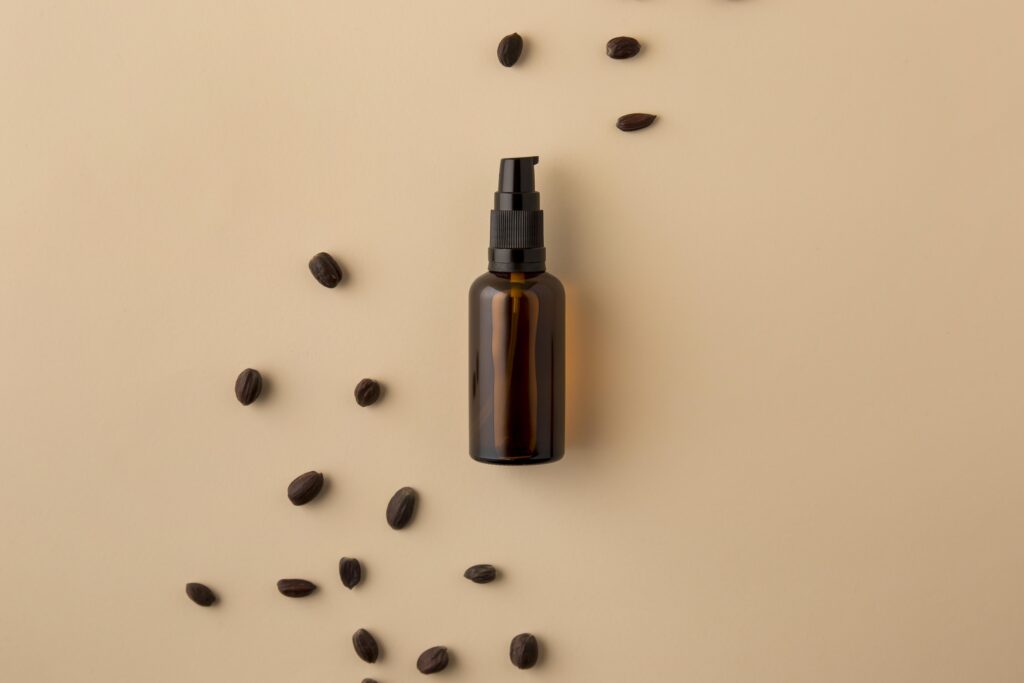Is coffee bad for skin? It’s a question that many of us coffee lovers may have pondered upon while sipping our favorite brew. With coffee being an integral part of our daily routines, it’s essential to understand its potential impact on our skin.
In short, coffee does have both positive and negative effects on the skin. On one hand, the antioxidants in coffee can help combat free radicals, which contribute to premature aging. On the other hand, excessive coffee consumption and its diuretic properties might lead to dehydration, potentially affecting the skin’s elasticity and glow.
But these are not the only aspects to consider.

In this article, we will delve into the potential disadvantages of excessive coffee consumption on your skin’s health and provide a clear answer to the lingering question – “Is coffee bad for skin?”
So, let’s get started on this journey to uncover the truth behind the relationship between coffee and your skin’s well-being.
Understanding the Impact of Coffee on Skin Health
The Benefits of Antioxidants in Coffee
Antioxidants play a crucial role in neutralizing harmful free radicals in our bodies. They contribute to healthy, glowing skin by preventing premature aging and reducing inflammation.
Coffee contains an abundance of antioxidants, making it a potential ally in our skincare routine.
The Role of Caffeine in Skincare Products
Caffeine’s ability to constrict blood vessels and reduce inflammation has made it a popular ingredient in skincare products. It can help reduce puffiness and dark circles around the eyes, giving the skin a refreshed look.
However, its effectiveness may vary depending on the formulation and individual skin type.
Potential Negative Effects of Coffee on Skin
While coffee offers various benefits, excessive consumption or topical application can have adverse effects on the skin. It is essential to understand these potential drawbacks to maintain healthy skin.
What are the disadvantages of coffee on skin?
Drinking three or more cups of coffee per day can have several disadvantages for the skin. While moderate coffee consumption may have some benefits, excessive intake can lead to adverse effects on skin health.

Here are some of the disadvantages of consuming three or more cups of coffee daily:
- Coffee is a diuretic, which means it increases urine production, leading to fluid loss from the body. This can result in dehydration, and when the skin lacks proper hydration, it may become dry, flaky, and lose its natural glow.
- Excessive coffee consumption can interfere with collagen production, a protein essential for maintaining skin’s elasticity and firmness. Reduced collagen levels may contribute to premature aging, leading to the formation of fine lines, wrinkles, and sagging skin.
- Consuming high amounts of coffee can elevate cortisol levels, the stress hormone. Elevated cortisol can lead to inflammation in the body, which may manifest on the skin as redness, irritation, and increased sensitivity.
- Coffee’s impact on hormonal levels can be problematic for individuals with acne-prone skin. Increased cortisol and hormonal fluctuations can exacerbate acne breakouts and lead to more frequent and severe pimples.
- Drinking excessive coffee, especially later in the day, can disrupt sleep patterns. Poor sleep quality can affect the skin’s ability to repair itself, resulting in a tired and dull complexion.
- Coffee can cause skin sensitivity in some individuals, leading to redness, itching, or irritation when consumed in large quantities.
- Regularly drinking dark-colored coffee can stain the teeth and lips, affecting the appearance of the smile.
- Coffee may hinder the absorption of certain essential nutrients, such as iron and zinc, which are crucial for maintaining healthy skin.
- Overconsumption of coffee may lead to neglecting other important aspects of a balanced diet, such as fruits, vegetables, and other nutrients that are essential for skin health.
- Consuming large amounts of coffee regularly can lead to caffeine addiction. Abruptly reducing or stopping coffee intake can result in withdrawal symptoms, including headaches and fatigue, which can indirectly impact skin health due to stress and disrupted sleep patterns.
Is coffee bad for skin?
In moderation, coffee is not necessarily bad for the skin and can even offer some benefits. Coffee is rich in antioxidants, which help combat free radicals and protect the skin from damage, contributing to a healthy and radiant complexion.
However, excessive coffee consumption, particularly multiple cups per day, can lead to dehydration due to its diuretic properties. Dehydration may result in dry, dull skin and could potentially exacerbate fine lines and wrinkles.
Moreover, excessive coffee intake can lead to hormonal fluctuations and increased cortisol levels, which may aggravate acne in some individuals.
For applying
When applied topically to the skin, coffee can have both positive and negative effects. Coffee’s natural exfoliating properties make it a popular ingredient in skincare products, helping to remove dead skin cells and promote smoother skin texture.

Moreover, the caffeine in coffee can constrict blood vessels and reduce inflammation, making it beneficial for reducing puffiness and dark circles.
However, using coffee on the skin can also have drawbacks. Coffee grounds can be abrasive and may cause irritation, especially for those with sensitive skin.
Additionally, excessive use of coffee-based products can stain the skin temporarily. It is crucial to patch test any coffee-infused skincare product before full application and use them in moderation to avoid potential adverse effects.
Read on: is coffee bad for skin aging?
FAQs
Can coffee reduce the appearance of cellulite?
While some coffee scrubs claim to reduce the appearance of cellulite, there is limited scientific evidence supporting this claim.
Cellulite reduction is better achieved through a combination of a healthy diet, exercise, and professional treatments.
Is decaffeinated coffee better for the skin?
Decaffeinated coffee may be a better option for individuals concerned about coffee’s potential negative effects on their skin. However, it is essential to consider other factors in your diet and lifestyle as well.
Does coffee cause wrinkles?
Excessive coffee consumption and its potential impact on collagen production may contribute to the development of wrinkles over time. Maintaining a balanced coffee intake and a good skincare routine can help minimize this risk.
Does coffee cause dark skin?
No, coffee does not cause dark skin. In fact, coffee contains antioxidants that can help protect the skin from damage caused by free radicals, which can contribute to skin aging and dark spots.
However, excessive sun exposure without proper protection can lead to darkening of the skin. It is essential to use sunscreen and take other sun protection measures to maintain a healthy complexion.
Is coffee good for the skin, yes or no?
Yes, coffee can be beneficial for the skin when used appropriately. Coffee is rich in antioxidants that can help fight free radicals, reducing the risk of premature aging and promoting a healthy complexion.
The caffeine in coffee can also constrict blood vessels and reduce inflammation, making it suitable for reducing puffiness and dark circles around the eyes.
Nevertheless, moderation is key, and excessive coffee consumption or application on the skin may lead to dehydration and other potential issues.
Conclusion
In conclusion, the impact of coffee on skin health can be both positive and negative. Its rich antioxidants can be beneficial, while excessive consumption may lead to skin-related concerns.
Understanding your skin type and being mindful of your coffee habits can help you enjoy your favorite brew while safeguarding your skin’s health.






